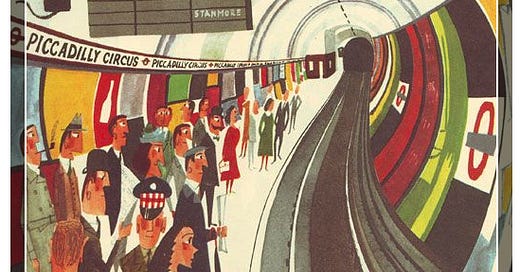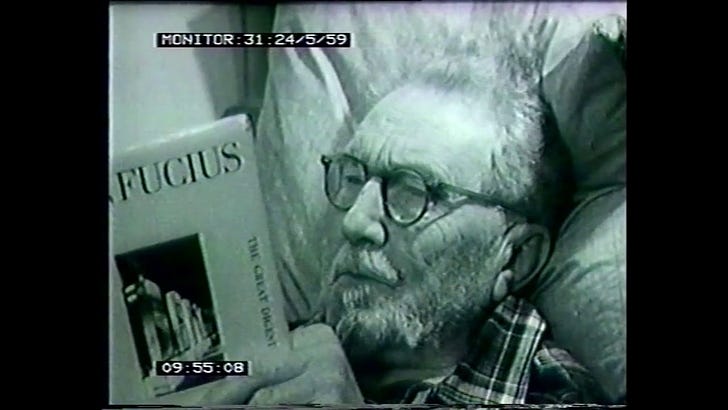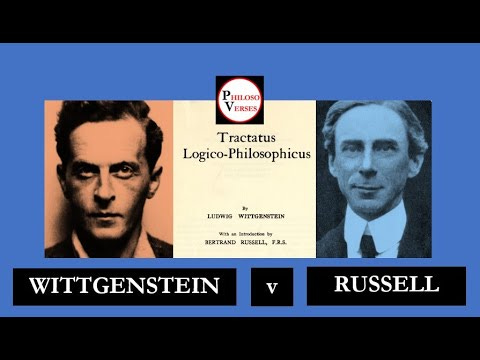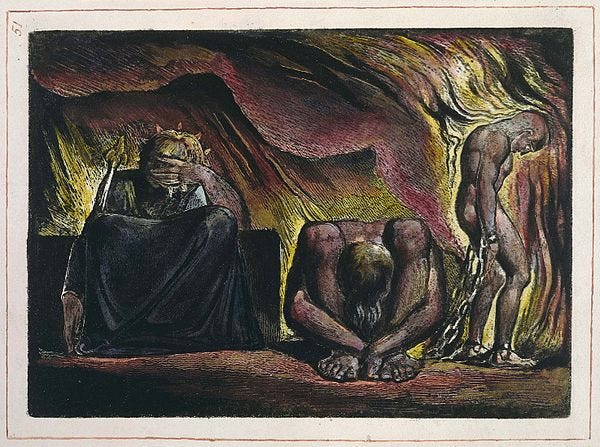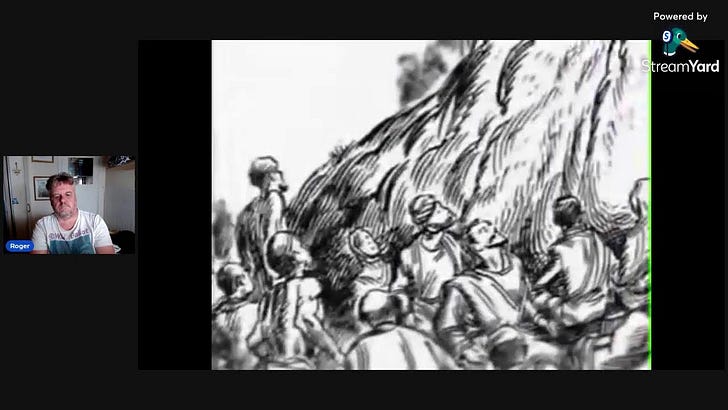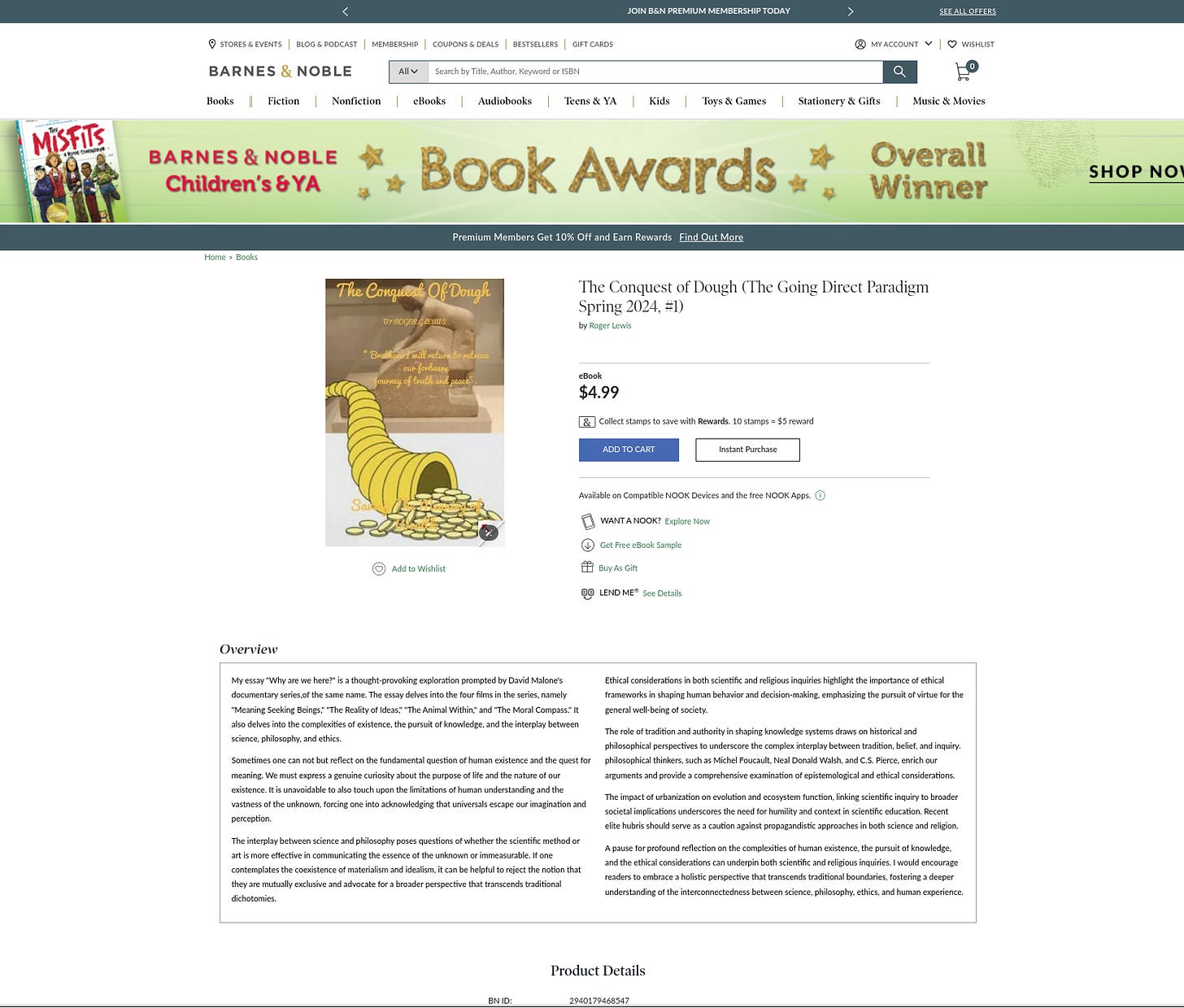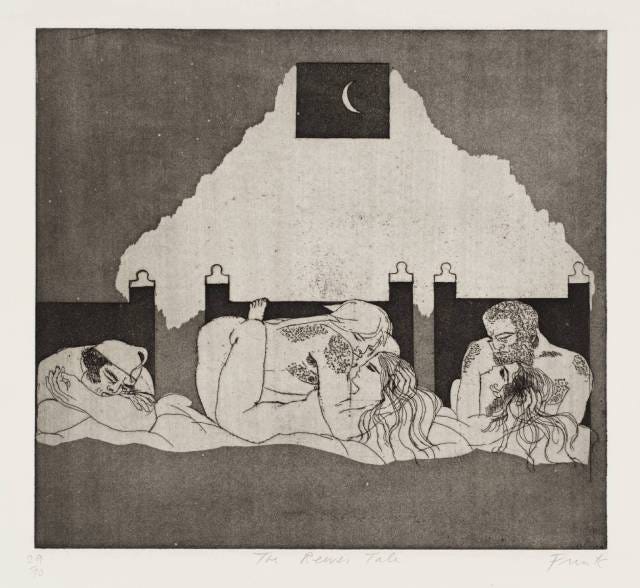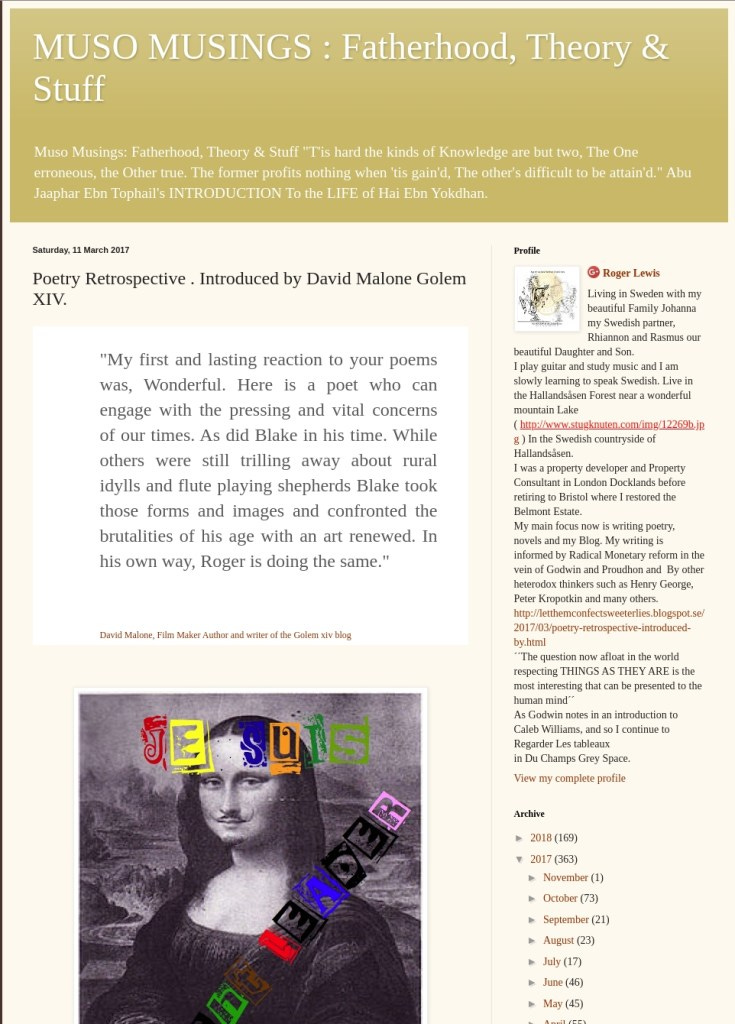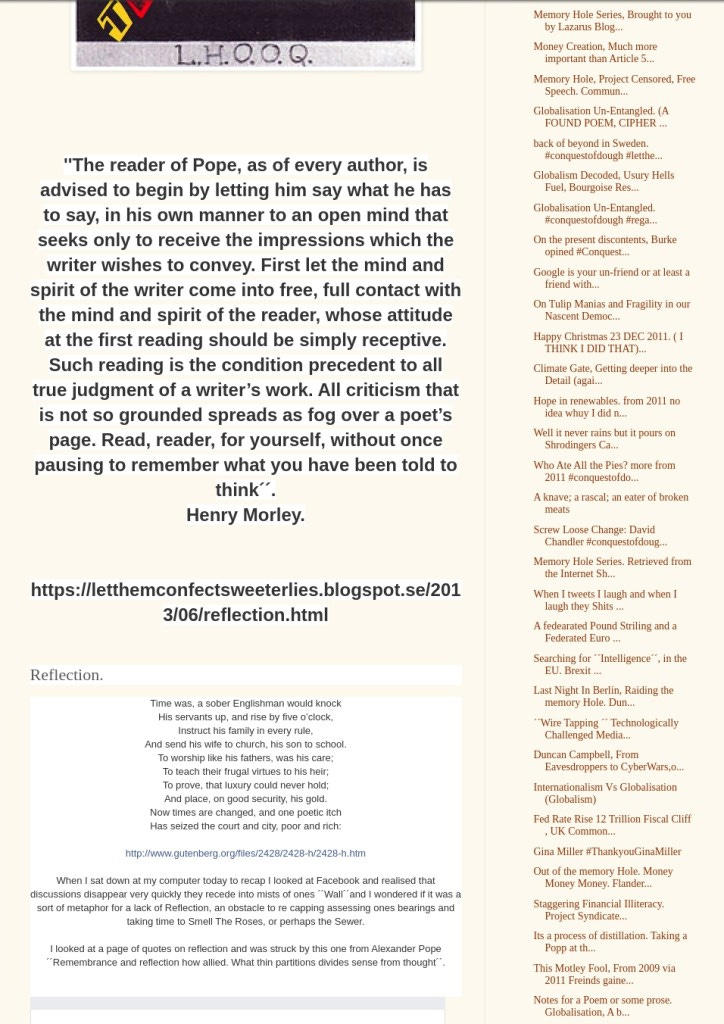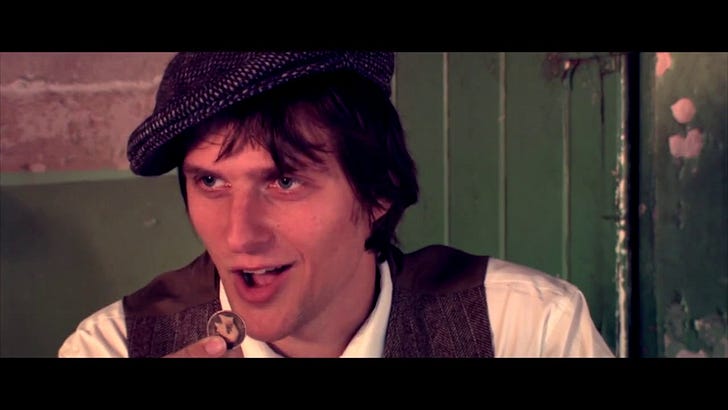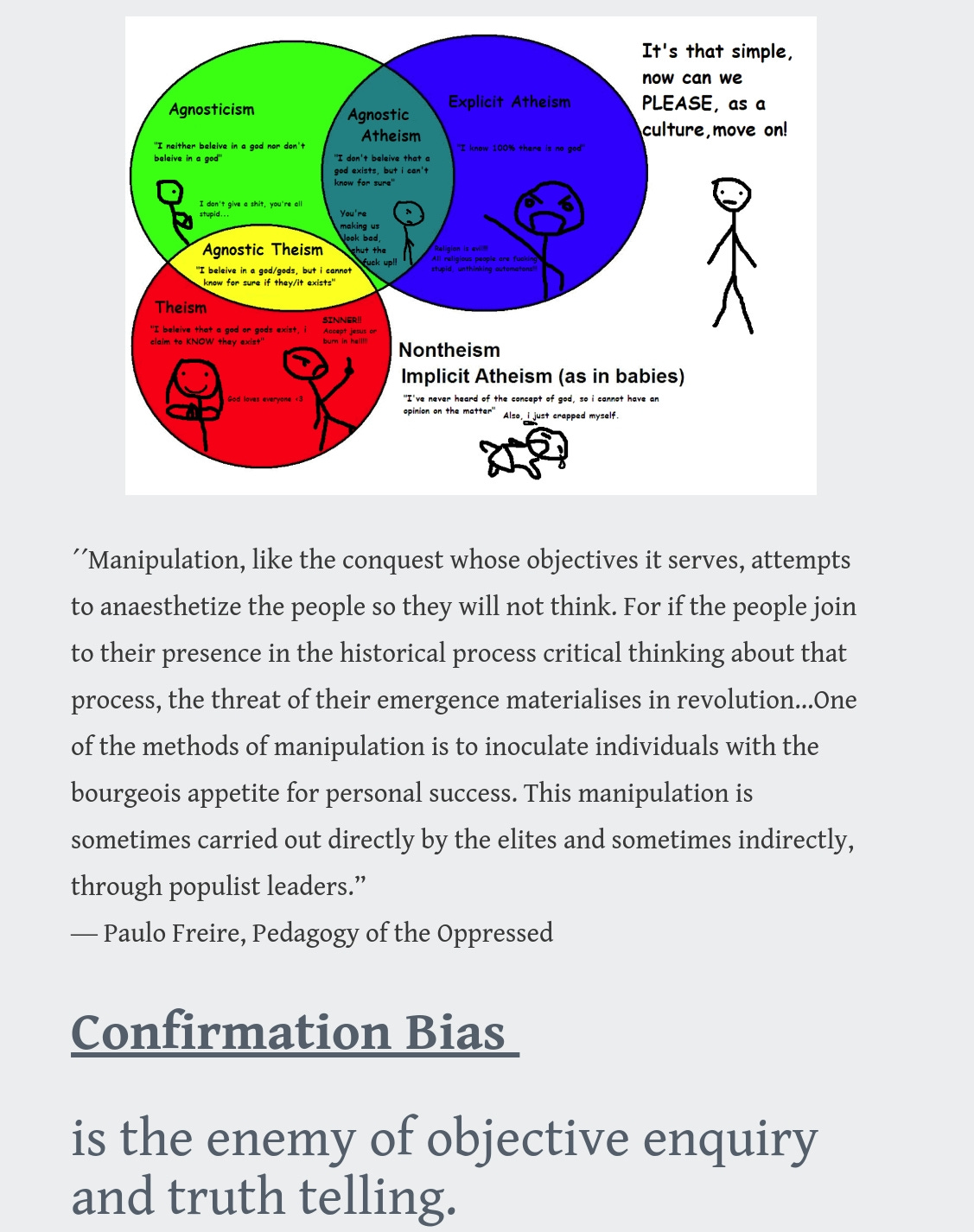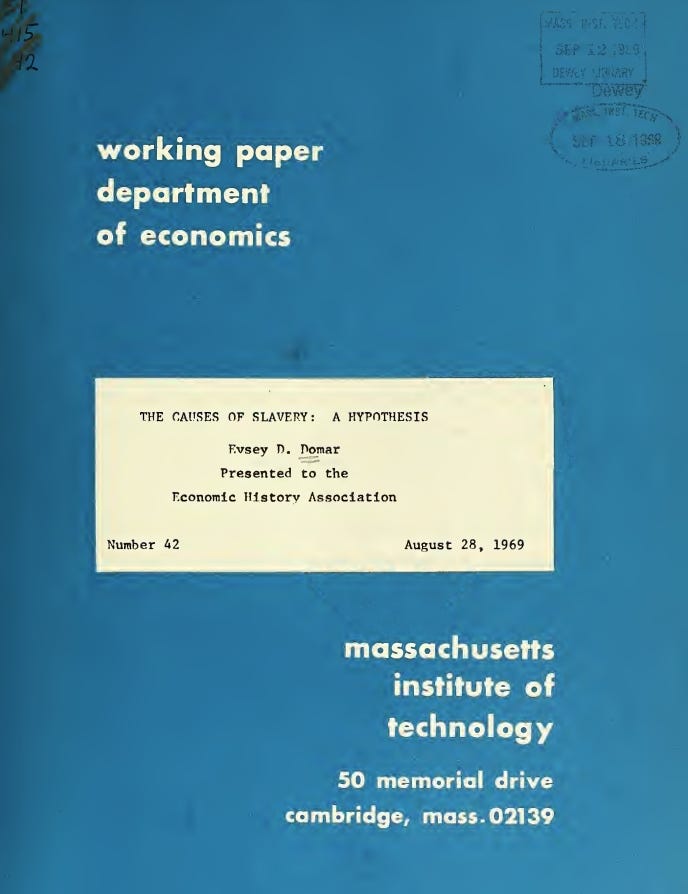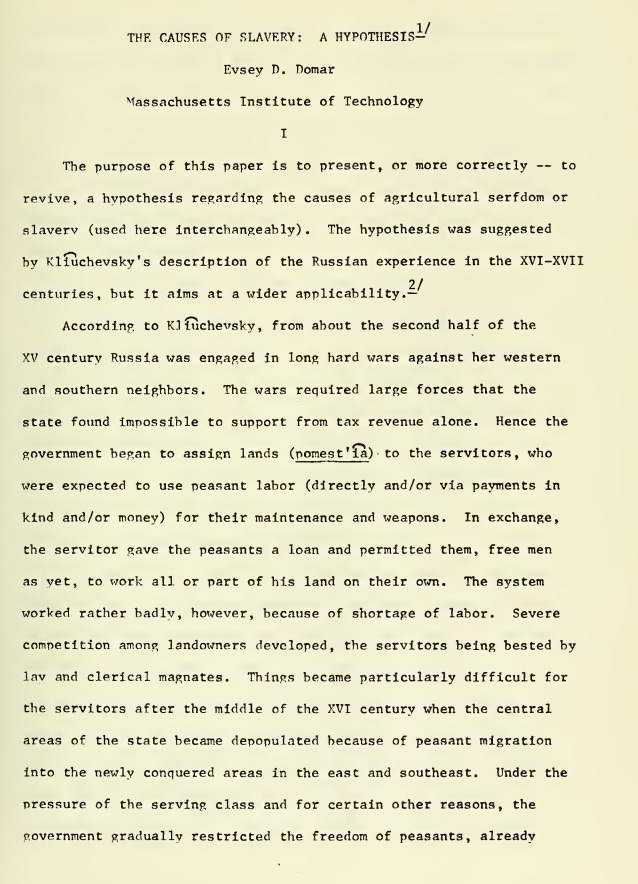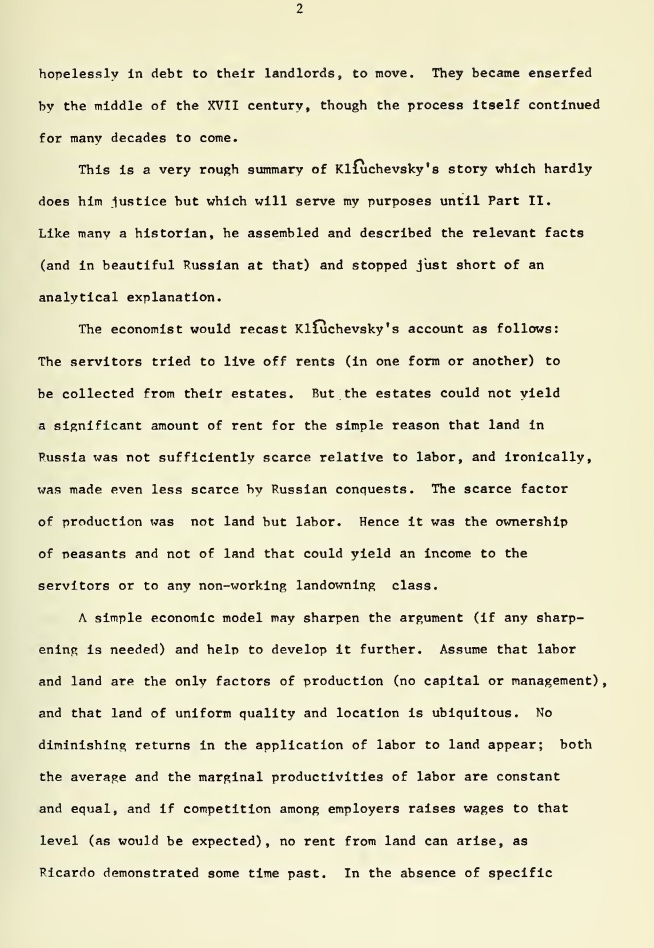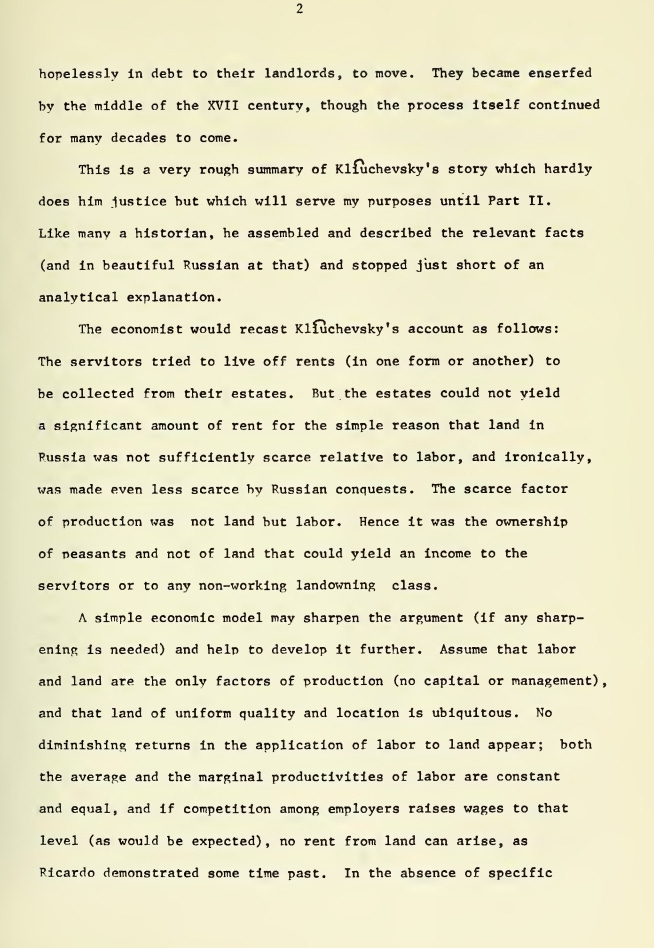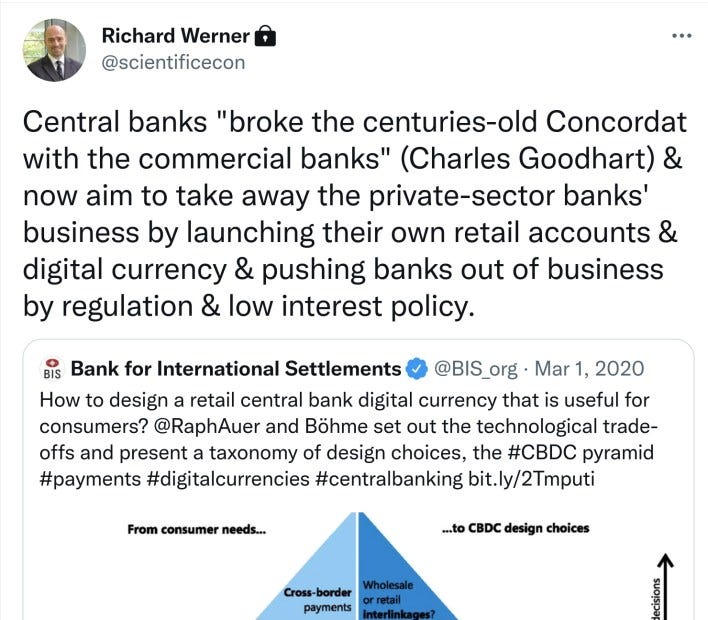Canto LXXXI. Mind the Gab, gwyliwch y gwagle,Selling Humanity by the @TheEzraPound
“You will find” said old André Spire, that every man on that board (Crédit Agricole) has a brother-in-law
I have had a week working on some study of William Blake and Ezra Pound.
I think that this post which is a sort of Algorithm that unfolds into the frame work which occults the Totalitariain , Macchievellian attack on Human Kinds better nature.
Canto LXXXI. Mind the Gab, gwyliwch y gwagle,Selling Humanity by the @TheEzraPound
“You will find” said old André Spire, that every man on that board (Crédit Agricole) has a brother-in-law
Canto LXXXI. Mind the Gab, gwyliwch y gwagle,Selling Humanity by the @TheEzraPound
In a Station of the Metro Launch Audio in a New Window BY EZRA POUND “The apparition of these faces in the crowd: Petals on a wet, black bough”.
The series of posts that unfold from that one link represent my own contemperaneous and reflective curated viewpoint on the emerging reality of a deterministic demagoguery of the Karl Rove variety.
Let's call it a Rovian Algorithm including a proof of freewill.
WIlliam Blake and Ezra pound are two poets whose work grapples with the inflection points of History, Blake the US and French Revolutionary Wars and, Pound spanning the 1st and Second World wars, ( Perhaps the History that would have been written by " The Other losing side".
My own view and I think probably both Blakes and Pounds is that there is as yet no winner as the Spiritual side of our better natures as Human Beings created in the image of "God" qua god, is emergent and always infinite
in that battle we are all on the same side.
“Man’s status is better and higher for the very reason for which it is thought to be inferior”
Pelagius (c. 390-418)
June 27, 2013
REALITY IS INFINITY IS LOVE IS INFINITE
Real Love reality is.
Self is Love, is Self
Love is I, I Love
Look in myself, Love is within
Love thou, Thou Art Love
Thou art other, you are love
love each other, We are Love
look for Love, Love is Without.
Know love, Know each other
See Love See Each Other
Love is We ,We are Love
Love each other, Each is Love
Love is Everything, Everything is Love
All is everything, Everything is Love
Love everything, Love Everyone
Love Everything, Everyone is love
Love is Real, Real is Love
Love Reality, Reality is Real
Reality is Love, Love is Reality
Reality is everywhere, Everywhere is Love
Love is the centre
Love has no Circumfrence
Everywhere is the centre
The centre is soul, Soul is Love
The purpose is Love is The Purpose.
Love is the Heart infinite reality is Love.
Infinity is Reality is Infinity
Love is Infinite, Infinity is Love
Be Love,be infinite
Love is infinity
Love is
The purpose of Love is .
Love is
We are
it is
all is
Love
Roger G Lewis 2013.
http://radicalspirit.typepad.com/seekingandserving/john-coltranes-a-love-supreme-poem.html
“Just like me, this person is seeking some happiness for his/her life. Just like me, this person has known sadness, loneliness and despair. Just like me, this person is seeking to fulfill his her needs. And just like me, this person is learning about life.” – a compassion meditation
In a Station of the Metro
Launch Audio in a New Window
BY EZRA POUND
“The apparition of these faces in the crowd:
Petals on a wet, black bough”.
"In a Station of the Metro" is an Imagist poem by Ezra Pound published in April 1913[1] in the literary magazine Poetry.[2]
Canto LXXXI
BY EZRA POUND
Zeus lies in Ceres’ bosom
Taishan is attended of loves
under Cythera, before sunrise
And he said: “Hay aquí mucho catolicismo—(sounded
catolithismo
y muy poco reliHion.”
and he said: “Yo creo que los reyes desparecen”
(Kings will, I think, disappear)
This was Padre José Elizondo
in 1906 and in 1917
or about 1917
and Dolores said: “Come pan, niño,” eat bread, me lad
Sargent had painted her
before he descended
(i.e. if he descended
but in those days he did thumb sketches,
impressions of the Velázquez in the Museo del Prado
and books cost a peseta,
brass candlesticks in proportion,
hot wind came from the marshes
and death-chill from the mountains.
And later Bowers wrote: “but such hatred,
I have never conceived such”
and the London reds wouldn’t show up his friends
(i.e. friends of Franco
working in London) and in Alcázar
forty years gone, they said: go back to the station to eat
you can sleep here for a peseta”
goat bells tinkled all night
and the hostess grinned: Eso es luto, haw!
mi marido es muerto
(it is mourning, my husband is dead)
when she gave me a paper to write on
with a black border half an inch or more deep,
say 5/8ths, of the locanda
“We call all foreigners frenchies”
and the egg broke in Cabranez’ pocket,
thus making history. Basil says
they beat drums for three days
till all the drumheads were busted
(simple village fiesta)
and as for his life in the Canaries…
Possum observed that the local portagoose folk dance
was danced by the same dancers in divers localities
in political welcome…
the technique of demonstration
Cole studied that (not G.D.H., Horace)
“You will find” said old André Spire,
that every man on that board (Crédit Agricole)
has a brother-in-law
“You the one, I the few”
said John Adams
speaking of fears in the abstract
to his volatile friend Mr Jefferson.
(To break the pentameter, that was the first heave)
or as Jo Bard says: they never speak to each other,
if it is baker and concierge visibly
it is La Rouchefoucauld and de Maintenon audibly.
“Te cavero le budella”
“La corata a te”
In less than a geological epoch
said Henry Mencken
“Some cook, some do not cook
some things cannot be altered”
’Iugx. . . . . ’emòn potí dwma aòn andra
What counts is the cultural level,
thank Benin for this table ex packing box
“doan yu tell no one I made it”
from a mask fine as any in Frankfurt
“It’ll get you offn th’ groun”
Light as the branch of Kuanon
And at first disappointed with shoddy
the bare ram-shackle quais, but then saw the
high buggy wheels
and was reconciled,
George Santayana arriving in the port of Boston
and kept to the end of his life that faint thethear
of the Spaniard
as grace quasi imperceptible
as did Muss the v for u of Romagna
and said the grief was a full act
repeated for each new condoleress
working up to a climax.
and George Horace said he wd/ “get Beveridge” (Senator)
Beveridge wouldn’t talk and he wouldn’t write for the papers
but George got him by campin’ in his hotel
and assailin’ him at lunch breakfast an’ dinner
three articles
and my ole man went on hoein’ corn
while George was a-tellin’ him,
come across a vacant lot
where you’d occasionally see a wild rabbit
or mebbe only a loose one
AOI!
a leaf in the current
at my grates no Althea
______
libretto
______
Yet
Ere the season died a-cold
Borne upon a zephyr’s shoulder
I rose through the aureate sky
Lawes and Jenkyns guard thy rest
Dolmetsch ever be thy guest,
Has he tempered the viol’s wood
To enforce both the grave and the acute?
Has he curved us the bowl of the lute?
Lawes and Jenkyns guard thy rest
Dolmetsch ever be thy guest
Hast ’ou fashioned so airy a mood
To draw up leaf from the root?
Hast ’ou found a cloud so light
As seemed neither mist nor shade?
Then resolve me, tell me aright
If Waller sang or Dowland played
Your eyen two wol sleye me sodenly
I may the beauté of hem nat susteyne
And for 180 years almost nothing.
Ed ascoltando al leggier mormorio
there came new subtlety of eyes into my tent,
whether of the spirit or hypostasis,
but what the blindfold hides
or at carneval
nor any pair showed anger
Saw but the eyes and stance between the eyes,
colour, diastasis,
careless or unaware it had not the
whole tent’s room
nor was place for the full EidwV
interpass, penetrate
casting but shade beyond the other lights
sky’s clear
night’s sea
green of the mountain pool
shone from the unmasked eyes in half-mask’s space.
What thou lovest well remains,
the rest is dross
What thou lov’st well shall not be reft from thee
What thou lov’st well is thy true heritage
Whose world, or mine or theirs
or is it of none?
First came the seen, then thus the palpable
Elysium, though it were in the halls of hell,
What thou lovest well is thy true heritage
What thou lov’st well shall not be reft from thee
The ant’s a centaur in his dragon world.
Pull down thy vanity, it is not man
Made courage, or made order, or made grace,
Pull down thy vanity, I say pull down.
Learn of the green world what can be thy place
In scaled invention or true artistry,
Pull down thy vanity,
Paquin pull down!
The green casque has outdone your elegance.
“Master thyself, then others shall thee beare”
Pull down thy vanity
Thou art a beaten dog beneath the hail,
A swollen magpie in a fitful sun,
Half black half white
Nor knowst’ou wing from tail
Pull down thy vanity
How mean thy hates
Fostered in falsity,
Pull down thy vanity,
Rathe to destroy, niggard in charity,
Pull down thy vanity,
I say pull down.
But to have done instead of not doing
this is not vanity
To have, with decency, knocked
That a Blunt should open
To have gathered from the air a live tradition
or from a fine old eye the unconquered flame
This is not vanity.
Here error is all in the not done,
all in the diffidence that faltered . . .
“Canto 81 in effect makes a distinction between the sabre-chop that kills and the scalpel-incision that cures. The lyrical evocation in Canto 80 of England’s past is carried on into 81 – (which we’ll be reading part of) – to make his point.
“On a visit to Maurice Hewlett’s house, ((a) friend of his), Pound had been strongly affected by a vision of England’s long history. He expressed it in an early version of Canto 1 – “…procession on procession by Salisbury/Ancient in various days, long years between them/”Ply over ply of live still wraps the earth here”. In Canto 80, the concept remains but darkened by the recollection of bloody divisions that have brought England into its present state of “rust, ruin, death duties and mortgages”. (The War of the Roses, the long enmity between England and France, England’s increased insularity after Henry VIII’s break with the Church, Reformation, Counter-Reformation, and so forth) – So this Canto “shifts from political to literary history and draws a relation ..”In the time of Chaucer (I may the beautè of hem not sustene”) there had been a European unity of culture, in which men of all nations could participate. There had been a unity of word and music to produce singable song, but as nation was divided from nation, and as church underwent schism, word parted from music – “and for a hundred and eighty years almost nothing” – (for a hundred and eighty years almost nothing worth listening to in poetry, until the Renaissance) – Then again the temporary impact of the Continent upon England, the Renaissance scholarship and music bringing word and music back into cooperation, and then, after that, again division, economic wars. destruction of France, decline of England culturally.”
https://allenginsberg.org/2015/12/ezra-pound-background-to-canto-lxxxi/
So Henry Lawes and John Jenkyns were two musician-poets of Elizabethan times.
“….thus Pound “gathers from the air a live tradition” but he is able to do so because he approached that tradition with an active, positive love so that it has become his “true heritage” Another uniting process is involved in this passage. One reason why words become divorced from music is that man becomes self-consciously and arrogantly man, sets himself qualitatively apart from other members of the created scale of beings to exist out of harmony with natural process . Pound, considering the ant, gets a new perspective, an enhanced humility and an increased accord with the process.”
[Audio for the above can be heard here, beginning at approximately seven minutes in, and concluding at approximately seventeen-and-a-quarter minutes in]
Ezra Pound – Canto LXXXI
AG: So I’ll just read that little fragment of (Ezra) Pound (“Your eyen two wol sleye me soddenly/I may the beaute of hem nat susteyne”) – It’s a little bit of.. little bit of gossip. I’ll just read it, read it for what it sounds like to you. I’ll read the whole Canto – Canto 81 – for whatever sense it makes, as a collage of Pound’s prison mental gossip (thinking to himself in prison, notating down little…little nostalgic recollections of pre-World War I)
[Allen proceeds to read, in its entirety, (with passing notations), Ezra Pound’s Canto LXXXI
gwyliwch y gwagle
For a Tear is an Intellectual thing. William Blake
William Blake's poem "For a tear is an intellectual Thing" delves into the themes of conflict, spirituality, and the enduring impact of violence. Through vivid imagery and thought-provoking symbolism, the poem challenges us to reflect on human nature and the pursuit of peace amidst societal challenges. Blake's words serve as a timeless reminder of the …
I'm
7:54
not an ecclesiastic. Do i I know my Bible?
7:58
better than most priests I can say .
Robert Graves
The most odd, indescribable thing of all
Which hardly one man there could see for wonder
Did something recognizably a something.'
'Well, what?'
'It made a noise.'
'A frightening noise?'
'No, no.'
'A musical noise? A noise of scuffling?'
'No, but a very loud, respectable noise —-
Like groaning to oneself on Sunday morning
In Chapel, close before the second psalm.'
'What did the mayor do?'
'I was coming to that.'
Buy the experimental “imagist” Novel by Roger Lewis at Barnes and Noble on line.
The Gap. Filling in the blanks, reading between the lines # eNaira Nigerian CBDC and #Aadhaar the Indian elephant in the room.
Paulo Freire > Paulo Freire > Quotes > Quotable Quote
Hecuba Screams!
This is a Song I have written about loss and suicide in memory of a friend . I have been working on a final arrangement and the lyric today ( 9th July 2015). The Choruses are drawn from Shakespeares Rape of Lucrece and Ovids Metamorphoses both of which deal with themes of loss and exile but also avarice and the motivation of jealousy and greed in enemies who seek to do damage not from a need to have enough but from a wish that others should be denied what they themselves merely covet. These themes have endured for thousands of years.
#2 But late on the pinnacle of fame, strong in my many sons. now exiled, penniless." [Ovid, Metamorphoses. Xiii And when fortune overturned the pride of the Trojans, who dared everything, so that both the king and his kingdom were destroyed, Poor wretched captured Hecuba, after she saw her Polyxena dead and found her Polydorus on the beach, was driven mad by sorrow and began barking like a dog...
#2, Ovid, Metamorphoses. Xiii
Quoted from Kant.
The Critique of Pure Reason
Translated by J. M. D. Meiklejohn.
PREFACE TO THE FIRST EDITION, 1781
Human reason, in one sphere of its cognition, is called upon to consider questions, which it cannot decline, as they are presented by its own nature, but which it cannot answer, as they transcend every faculty of the mind.
It falls into this difficulty without any fault of its own. It begins with principles, which cannot be dispensed with in the field of experience, and the truth and sufficiency of which are, at the same time, insured by experience. With these principles it rises, in obedience to the laws of its own nature, to ever higher and more remote conditions. But it quickly discovers that, in this way, its labours must remain ever incomplete, because new questions never cease to present themselves; and thus it finds itself compelled to have recourse to principles which transcend the region of experience, while they are regarded by common sense without distrust. It thus falls into confusion and contradictions, from which it conjectures the presence of latent errors, which, however, it is unable to discover, because the principles it employs, transcending the limits of experience, cannot be tested by that criterion. The arena of these endless contests is called Metaphysic.
Time was, when she was the queen of all the sciences; and, if we take the will for the deed, she certainly deserves, so far as regards the high importance of her object-matter, this title of honour. Now, it is the fashion of the time to heap contempt and scorn upon her; and the matron mourns, forlorn and forsaken, like Hecuba:
Modo maxima rerum,
Tot generis, natisque potens...
Nunc trahor exul, inops.
Ovid, Metamorphoses.
[xiii, “But late on the pinnacle of fame,
strong in my many sons.
now exiled, penniless."]We very often hear complaints of the shallowness of the present age, and of the decay of profound science. But I do not think that those which rest upon a secure foundation, such as mathematics, physical science, etc., in the least deserve this reproach, but that they rather maintain their ancient fame, and in the latter case, indeed, far surpass it. The same would be the case with the other kinds of cognition, if their principles were but firmly established. In the absence of this security, indifference, doubt, and finally, severe criticism are rather signs of a profound habit of thought. Our age is the age of criticism, to which everything must be subjected. The sacredness of religion, and the authority of legislation, are by many regarded as grounds of exemption from the examination of this tribunal. But, if they are exempted, they become the subjects of just suspicion, and cannot lay claim to sincere respect, which reason accords only to that which has stood the test of a free and public examination.
A Priori, "The Proof of a Theory is in its reasoning " Ludvig Von Mises. I would propose this title. "Gold Is Money" JP Morgan. Discuss?
2 Ludwig Von Mises, Theory of Money & Credit, 1912, (Capetown, Jonathan Cape, 1934), pp. 82, 478, and Ch. 7, sect
9 Jul 2013
Interpretation Cover of WCM.
#QED
Shelly, Queen Mab , Paul Foot
ROGERGLEWIS 11:30 AM ON APRIL 29, 2018 PERMALINK | REPLY | EDIT | FOLLOW
CHAUCER’S CUNT
http://letthemconfectsweeterlies.blogspot.se/2011/06/from-little-acorns.html
http://letthemconfectsweeterlies.blogspot.se/2018/04/enough-with-debt-already-so-who-keeps.html
Now that I have your attention, I regret to inform you that he didn’t have one. On several occasions recently, sometimes in conversations about censorship, I have heard people say that Chaucer used the word “cunt.” Indeed, Wikipedia says, “The word appears several times in Chaucer’s The Canterbury Tales (c. 1390) in bawdy contexts, but it does not appear to be considered obscene at this point, since it is used openly.” Similarly, RationalWiki proclaims that “Chaucer used the word unblushingly in his Canterbury Tales.”
Oddly, these statements are followed by quotes from The Canterbury Tales that belie them, for the word that Chaucer uses is not “cunt,” but “queynte.” “Queint,” as a noun, literally means “a clever or curious device or ornament” (Middle English Dictionary) or an “elegant, pleasing thing” (Riverside Chaucer). When used to refer to a woman’s genitalia, it is both…
View original post 664 more words
https://www.bitchute.com/video/UX7OGTQme3zp/
Trifles and observations arising from a review of The Blocked, not blocked and otherwise treewise lost in woodiness .
Then resolve me, tell me aright
If Waller sang or Dowland played
Your eyen two wol sleye me sodenly
I may the beauté of hem nat susteyne
And for 180 years almost nothing.
Ed ascoltando al leggier mormorio
there came new subtlety of eyes into my tent,
whether of the spirit or hypostasis,
but what the blindfold hides
or at carneval
nor any pair showed anger
Saw but the eyes and stance between the eyes,
colour, diastasis,
careless or unaware it had not the
whole tent’s room
nor was place for the full EidwV
interpass, penetrate
casting but shade beyond the other lights
sky’s clear
night’s sea
green of the mountain pool
shone from the unmasked eyes in half-mask’s space.
What thou lovest well remains,
the un-poem for an Un-Plandemic
Witness the cargo cult science
a new normal world, ordered
masqued inoculated confused
Stockholm syndrome reliance
An exponential discombobulation
taking stock of the herd
undertaking a cull saving WHO?
a logarithmic manipulation.
Power in the Blood,”No time for spindoctor’s medicine
Cooked up by the government, selling me some cover-up.
Sponsored information, crack pipes in the shopping malls.
Nothing but another drug, a license they can buy and sell.
Already the darkest hour had fallen
a broken fourth estate substituted
The broken already forced into shade
A parasite poised to weaken its host.
the new normal new year 2020
Syria, Libya,Yemen? a new PM
portended cummings and goings
Barnard Castles on shifting sands.
Gladios Back, CRASH 2, COVID19,
& VIRAL MEDIA NEUROSIS: Are they connected?
Bread and Circuses polarised narratives.
The Average age of “with” was 82, n n nineteen
A behindhand review WHO
again authored these present discontents
buyers remorse so soon
a seemingly determined path?
Chrysippus Ha! you jest with me?
Beware of the shaft of insoluble syllogism.
3 wise simians a river of lies
a plausible precautionary principle.
Crimean tartar to condiment,
season if you will an unsavory Jam.
A complot of mischievous compote
all Nightingales twittering confinement.
creating a gestalt settled-science space
LITTLE WHITE LIES yet a stain grows
only a dictatorship—their dictatorship, of course
can Build Back Better
Unboxing the Panacea That Cures All ills
“Mien lieben Folk, tuning in across YouTube land”
you can stick your poison vaccines up your arse
a Panacea administered in such a manner will…..
Cabotage cargos of mendacity
An inanition of Truth
there is a glaring lacuna
The Oligarchical Virus #PlatonOvidVirus666
Six impossible things before breakfast or,
the truth? Circular Arguments or the Circular Economy.
“La réforme oui, la chienlit non”
Exorbitant Privilege, Abandon Hope.
The People Versus Parliament
The People Versus the Banks.
“video et taceo” Bjornen Sauver
Waking up is never easy, Aadhaar
We must seize this splendid opportunity
win their trust, hopefully, win them over.”
This person is not afraid to meet the people
& will within history fight at their side.
Going Direct to the Horse’s Mouth.
Hilldebrand ( Blackrock)Sedwill,( Cabinet office),
( Spook) Same Script different theatre.
Zappas Wall of Worry.
Do the Cantango, Backwardation to Monopoly
Scaramouch, Scaramouch, will you do the Fandango!
Thunderbolts and lightning, very, very frightening
I owe my soul to the company store
singing Orpheus’s dirge as we went
it was just like other lyres.
The king did not always bend the bow
Those who cannot find the truth within themselves
Political hypochondria. Fear Uncertainty and Doubt
An Inverted world Order , inside out
Po x Pd x Pn = Pc x Pp x Pi
Currents of the tides, Time and the nature of things, pass
What is the Purpose of the Economy? #ArtificialScarcity #TaxFarming #FinanceTailWagsCommunityDog #WagTheDog #Stupidlosophy to #CanofWorms #Aadhaar #DutchFarmers filed under #ClimateChange? by #BBC Saw You Coming – Stupidlosophy (PROBLEM) Reaction ( Narrative ) Solution
The video discusses Richard Rorty's 1996 article "Fraternity Reigns," reflecting on America's socio-political evolution and economic disparities from 2014 to 2044, and contrasts it with William Blake's 1798 prophecy about America.
The video discusses Richard Rorty's 1996 article "Fraternity Reigns," reflecting on America's socio-political evolution and economic disparities from 2014 to 2044, and contrasts it with William Blake's 1798 prophecy about America.
Detailed Summary for [Awake! awake O sleeper of the land of shadows, wake! expand!](
by [Monica](https://monica.im)
[00:01](
Exploring the evolution of political vocabulary and societal values
- Reflecting on the transition from the 'dark years' to a new political era}
- Comparison between historical acceptance of slavery and modern wealth inequality}
- Questioning past tolerance of extreme income gaps and living conditions}
[03:16](
Evolution of economic rights and the shift away from socialism towards capitalist democracy
- Evolution of rights in the liberal tradition}
- Negative consequences of socialist dictatorships}
- Criticism of extending economic rights leading to serfdom}
- Debate on compatibility of capitalism with ideals of human brotherhood}
- Missed opportunities to address economic pressures for social stability}
[06:34](
Shift from chattel slavery to wage slavery and the impact on American society
- Civil war reformers discussing the shift to wage slavery}
- Herbert Croly's Progressivist Manifesto highlighting the dominance of the wage slavery problem}
- Industrialization in the 1870s and 1880s leading to changes in American life}
- Concern over the loss of fraternity and community in American society}
- Reformers advocating for redistribution to address economic disparities}
[09:52](
Evolution of moral achievements in the 20th century
- Impact of rhetoric of rights on trade unions and employment}
- Initiation of the civil rights movement by the Brown decision}
- Progress in protecting black voting rights}
- Emergence of a culture of violence among black youths}
- Revival of old racial prejudices by white suburbanites}
[13:11](
The collapse of trust in government and the economy led to chaos in the late 21st century
- Transportation and communication were disrupted by weapons during the 2014 revolution}
- The second Great Depression plunged the country into economic turmoil}
- Insecurity led to a collapse of trust in government}
- Political discourse shifted towards fraternity and unselfishness, quoting scripture and literature}
- Steinbeck emphasized the importance of fraternity and social hope in times of crisis}
[16:28](
Shift in American political discourse and morality
- Jefferson's influence on political discourse}
- Focus on preventing re-emergence of hereditary castes}
- Evolution of morality towards fellow feeling and sympathy}
- Rediscovery of the social gospel theology}
- American identity shift in the 20th century}
[19:48](
Reflections on the fragility of American democracy and society
- Comparison of American vulnerability to dictatorial takeovers with other countries}
- The religious-like faith of Americans in their country}
- Realization of the importance of maintaining American unity and fraternity}
CHURCH AND STATE
Fraternity Reigns
By Richard Rorty
Sept. 29, 1996
See the article in its original context from September 29, 1996, Section 6, Page 155Buy Reprints
New York Times subscribers* enjoy full access to TimesMachine—view over 150 years of New York Times journalism, as it originally appeared.
*Does not include Crossword-only or Cooking-only subscribers.
About the Archive
This is a digitized version of an article from The Times’s print archive, before the start of online publication in 1996. To preserve these articles as they originally appeared, The Times does not alter, edit or update them.
Occasionally the digitization process introduces transcription errors or other problems; we are continuing to work to improve these archived versions.
TAKE A PROPER GANDER AT THE OLYMPICS IN JAPAN. “A NEW POEM”
March 28, 2021 rogerglewis Uncategorized Leave a comment
In the words of John Lee Hooker, “Its in him and its gotta come out”, not so much Boogie Chillin as Bloody Fuming! When introducing a new poem,
often a poet will describe that which came before led up to the notion, immination, utterence or brain fart.
here I do something similar in something of an All Roads lead to Tokyo in our new science of everything turned up to front back forwards double plus good brave new 1984 ness of it all.
Proper Gander Olympics.
To the land of Setting sun Tally-Ho
an anti socially distanced event
only the big screen regarde les tableaux
catch it on Zoom its forbidden to Go
Unprecedented they said since the War
Nurnberg was I suppose before, yet what of 74?
Seventy Eight and 82, room 101 1984.
best enjoy the spectacle, don’t make a furore
Google Geo Political Advantages
Facebook your genetic allegiances
Scream it down you tube once mourn
Wikipedia sets it in aspick forsworn.
Has Aunty been Mistaken
Did Walkers inform her comment
In Sexed up dossier reportage
distracted by decollage, truth inoculation.
Roger G Lewis 2012 (CopyLeft)
Second Temple Extension Herod the Vassal King of Whom? part 1
tonefreqhz (34)in #herod • 5 years ago (edited)
Second Temple Extension Herod the Vassal King of Whom?
An attempt at a sweep of 2000 years of Judeo Christian Syncretism with DIvine Right of Kings, ETc. Jesus was a Brexiteer.
https://longhairedmusings.wordpress.com/?s=Iron+Law+of+Oligarchy
https://longhairedmusings.wordpress.com/2016/01/06/the-iron-law-of-oligarchy/
https://www.bitchute.com/channel/xXu1IS3mTl5V/
The Ragged Trousered Philanthropist
MAR 13 •
1
Nature rejects the monarch, not the man
Shelly against enshittification
MAY 7 •
1
Canto LXXXI. Mind the Gab, gwyliwch y gwagle,Selling Humanity by the @TheEzraPound
5 HRS AGO •
1
FEB 12 •
1
#MOABS MOTHER OF ALL BUMPER STICKERS. PUTNAM ON THROWING THE BABY OUT WITH THE BATHWATER. WEB 3
ITS REALLY A P2P END TO END ENCRYPTION THANG!
FEB 14 •
1
WE’RE AN EMPIRE NOW BRAVE NEW WORLD 1980
´´The aide said that guys like me were “in what we call the reality-based community,” which he defined as people who “believe that solutions emerge from your judicious study of discernible reality.” I nodded and murmured something about enlightenment principles and empiricism. He cut me off. “That’s not the way the world really works anymore.” He continued “We’re an empire now, and when we act, we create our own reality. And while you’re studying that reality—judiciously, as you will—we’ll act again, creating other new realities, which you can study too, and that’s how things will sort out. We’re history’s actors … and you, all of you, will be left to just study what we do.”
Suskind, Ron (2004-10-17). Faith, Certainty and the Presidency of George W. Bush. The New York Times Magazine.
https://twitter.com/scientificecon/status/1234203930478989313?ref_src=twsrc%5Etfw
https://donlepan.blogspot.com/2017/02/obituary-daniel-f-vickers.html
By this time Vickers was well known to historians throughout the States. His award-winning 1994 book Farmers and Fishermen: Two Centuries of Work in Essex Country, Massachusetts, 1630-1830, had delineated through painstaking analysis of archival records of entire communities the extent to which the development of New England had depended on labor that was largely unfree—with workers held in check not by slavery but by onerous burdens of debt. It had been hailed by reviewers as “one of the best works yet written on the early American economy” and as a book that explained “the deepest inner workings of New England society.”


